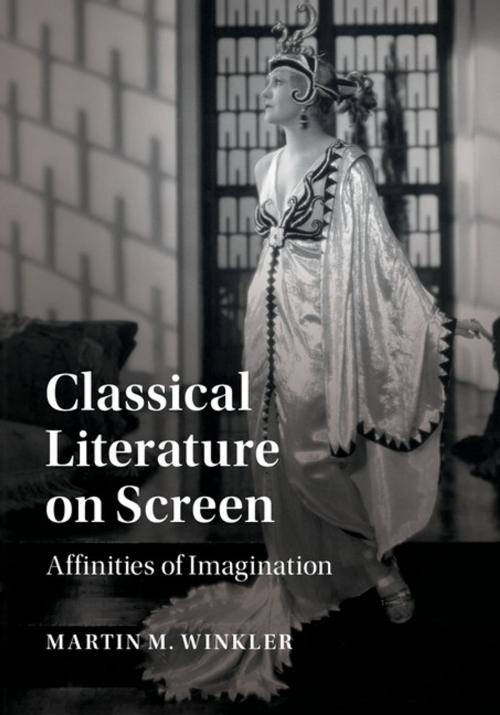Classical Literature on Screen
Affinities of Imagination
Nonfiction, History, Ancient History, Fiction & Literature, Literary Theory & Criticism| Author: | Martin M. Winkler | ISBN: | 9781108126205 |
| Publisher: | Cambridge University Press | Publication: | September 14, 2017 |
| Imprint: | Cambridge University Press | Language: | English |
| Author: | Martin M. Winkler |
| ISBN: | 9781108126205 |
| Publisher: | Cambridge University Press |
| Publication: | September 14, 2017 |
| Imprint: | Cambridge University Press |
| Language: | English |
Martin M. Winkler argues for a new approach to various creative affinities between ancient verbal and modern visual narratives. He examines screen adaptations of classical epic, tragedy, comedy, myth, and history, exploring, for example, how ancient rhetorical principles regarding the emotions apply to moving images and how Aristotle's perspective on thrilling plot-turns can recur on screen. He also interprets several popular films, such as 300 and Nero, and analyzes works by international directors, among them Pier Paolo Pasolini (Oedipus Rex, Medea), Jean Cocteau (The Testament of Orpheus), Mai Zetterling (The Girls), Lars von Trier (Medea), Arturo Ripstein (Such Is Life), John Ford (westerns), Alfred Hitchcock (Psycho), and Spike Lee (Chi-Raq). The book demonstrates the undiminished vitality of classical myth and literature in our visual media, as with screen portrayals of Helen of Troy. It is important for all classicists and scholars and students of film, literature, and history.
Martin M. Winkler argues for a new approach to various creative affinities between ancient verbal and modern visual narratives. He examines screen adaptations of classical epic, tragedy, comedy, myth, and history, exploring, for example, how ancient rhetorical principles regarding the emotions apply to moving images and how Aristotle's perspective on thrilling plot-turns can recur on screen. He also interprets several popular films, such as 300 and Nero, and analyzes works by international directors, among them Pier Paolo Pasolini (Oedipus Rex, Medea), Jean Cocteau (The Testament of Orpheus), Mai Zetterling (The Girls), Lars von Trier (Medea), Arturo Ripstein (Such Is Life), John Ford (westerns), Alfred Hitchcock (Psycho), and Spike Lee (Chi-Raq). The book demonstrates the undiminished vitality of classical myth and literature in our visual media, as with screen portrayals of Helen of Troy. It is important for all classicists and scholars and students of film, literature, and history.















